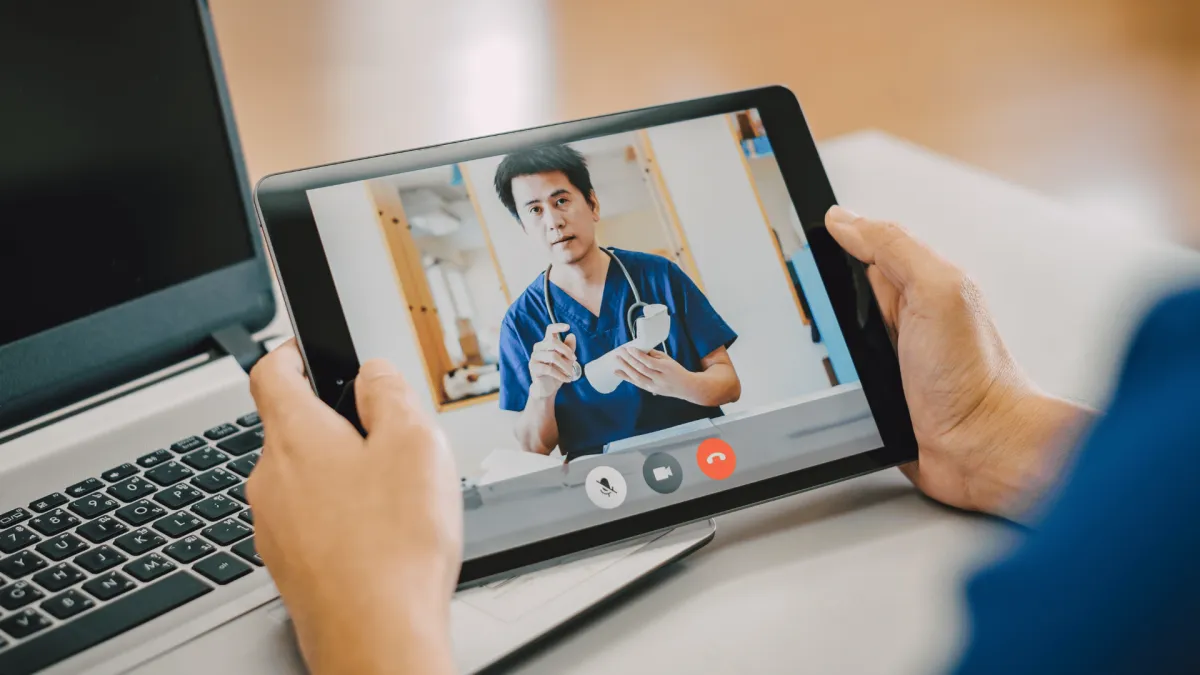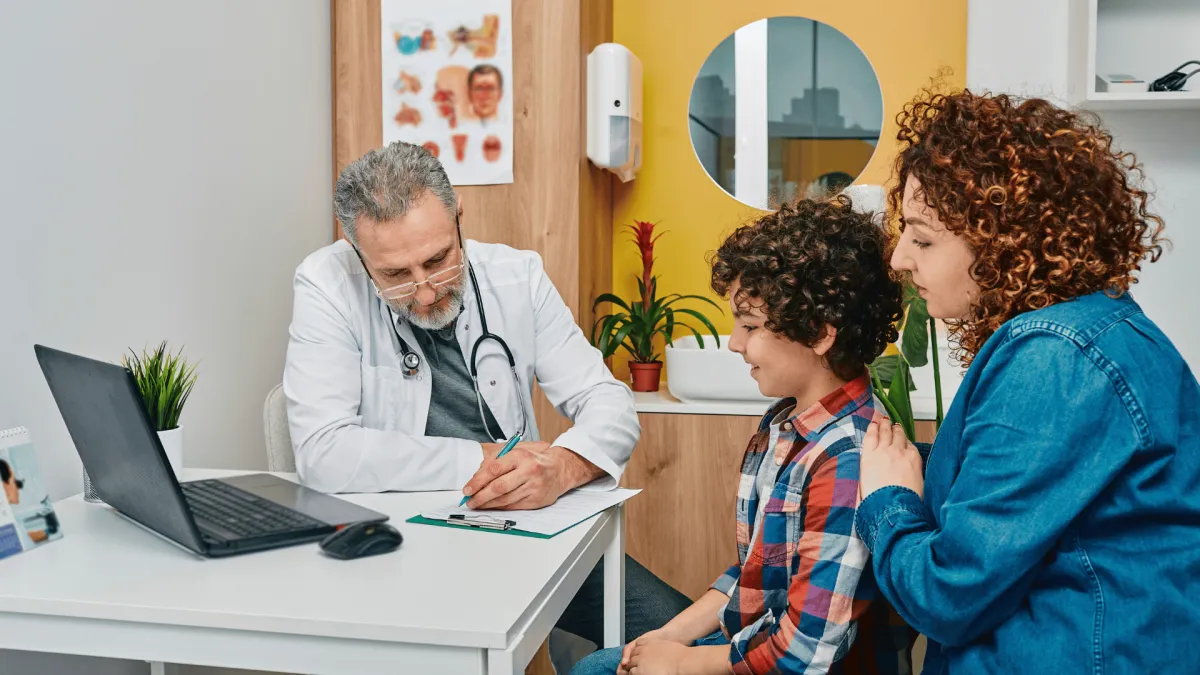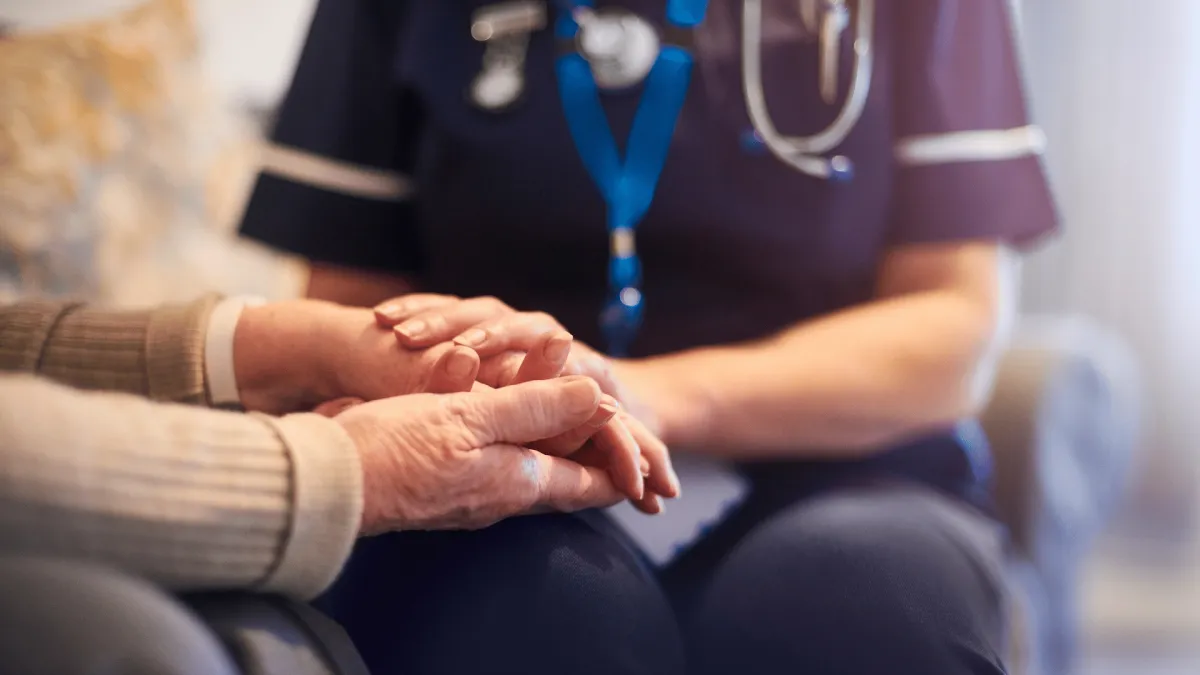
Patient Recruitment

Are you interested in participating in a clinical trial? At Yoshe Clinical Operations, we are always seeking volunteers willing to contribute to the advancement of medical science. By joining a clinical study, you can access new treatments and help researchers develop therapies that may benefit others in the future.
Join a Clinical Trial:
To learn more about how you can participate in a clinical trial, please fill out our Volunteer Interest Form, or contact us at [email protected] or +1 (214) 218-6750
What is a Clinical Trial?
Clinical trials help determine if medications, vaccines, medical devices, and medical procedures are safe and effective for treating or preventing diseases and health conditions. Without clinical trials, we have no new treatments. So, by joining a clinical trial you contribute to meaningful change in our world.

What is a Clinical Trial?

Clinical trials help determine if medications, vaccines, medical devices, and medical procedures are safe and effective for treating or preventing diseases and health conditions. Without clinical trials, we have no new treatments. So, by joining a clinical trial you contribute to meaningful change in our world.
Should I Participate?
Potential Benefits
Although there are no promises of direct benefits, people choose to take part in clinical trials for a variety of reasons, such as:
The chance to receive an investigational drug or treatment not available outside the trial.
Close monitoring of health conditions.
Help and hope for future patients.
Support for medical and scientific progress.
Better understanding of health conditions.
Information about support groups and other resources.
Reimbursement for time and travel expenses.

Potential Risks
Research comes with risks, and a clinical trial is no exception. Potential risks from being in a clinical trial include (but are not limited to):
Side effects (from investigational drugs or treatments or from medical procedures).
Health conditions getting worse or staying the same.
Expenses (such as for travel, childcare, or medical procedures not covered by insurance).
Frequent or long medical appointments.
Should I Participate?

Potential Benefits
Although there are no promises of direct benefits, people choose to take part in clinical trials for a variety of reasons, such as:
The chance to receive an investigational drug or treatment not available outside the trial
Close monitoring of health conditions.
Help and hope for future patients.
Support for medical and scientific progress.
Better understanding of health conditions.
Information about support groups and other resources.
Reimbursement for time and travel expenses.
Potential Risks
Research comes with risks, and a clinical trial is no exception. Potential risks from being in a clinical trial include (but are not limited to):
Side effects (from investigational drugs or treatments or from medical procedures).
Health conditions getting worse or staying the same.
Expenses (such as for travel, childcare, or medical procedures not covered by insurance).
Frequent or long medical appointments.

About the research
Why is the trial being done?
Who will be in the trial?
Is the trial testing an investigational drug or treatment?
Who is running the trial?
What happens during the trial
How long will I be in the trial?
How often do I have to come to the doctor's office?
Will I see a doctor when I come to the trial site?
Will I receive an investigational drug or treatment?
Is there a placebo?
What medical tests or procedures will I have?
Do I need to do anything at home?
Potential risks and benefits
Are there any risks or side effects related to being in the trial?
Can I do anything to reduce risks or minimize side effects?
What if I experience side effects after the trial?
Will I benefit from being in the trial?
What if I don't want to have a medical test or procedure that is part of the trial?
Would leaving the trial early have any effect on my health or on my regular medical care?
Support and Compensation
Can I get help with traveling to and from the trial site?
Will I be paid for being in the trial?
Do I have to pay anything to be in the trial?
How do I find out if my insurance will cover costs related to the trial?
Can I get reimbursed for expenses related to coming to the trial site, such as meals, travel, & childcare?
Daily life
Will I need to change my daily routine?
How long will I need to stay at the trial site each time?
Will I need to be away from my family or friends?
Will I need to miss work?
Will I need to change my lifestyle during the trial? (e.g., eat different foods, stop drinking caffeine or alcohol, stop using nicotine, use birth control, etc.)
Other options
What other options do I have?
How does the trial compare to the regular care I may receive from my doctor if I don’t take part in the trial?
Can I leave the trial early?
Can I continue with the investigational drug or treatment after the trial ends?
What if I have questions or concerns during the trial?
Building a Support System
Some people need help from loved ones or care partners to participate in a clinical trial. A child, an elderly person, or someone whose health condition makes certain activities more difficult all deserve the same clinical trial opportunities that others have. Your loved one or care partner may be asked to:
Help a clinical trial participant follow trial requirements
Administer an investigational drug or treatment
Assist with completing trial-related activities
Keep track of changes in a participant’s health
Bring a participant to trial appointments
Communicate with the research team

Some people need help from loved ones or care partners to participate in a clinical trial. A child, an elderly person, or someone whose health condition makes certain activities more difficult all deserve the same clinical trial opportunities that others have. Your loved one or care partner may be asked to:
Help a clinical trial participant follow trial requirements
Administer an investigational drug or treatment
Assist with completing trial-related activities
Keep track of changes in a participant’s health
Bring a participant to trial appointments
Communicate with the research team
Common Questions

Are clinical trials safe?
Clinical trials follow standards and are highly regulated to protect participants. Every trial is closely monitored by an independent Ethics Committee (EC) or Institutional Review Board to safeguard the rights and welfare of participants. Nevertheless, clinical trials cannot be risk-free. Although safety precautions are in place to protect people who participate in clinical trials, your condition or health could remain the same, improve or get worse.
What is an IRB or Ethics Committee?
An Institutional Review Board (IRB) or an Ethics Committee (EC) is an independent group of doctors, scientists, and lay people - just like you - who are dedicated to making sure that the clinical trial participants are not exposed to unnecessary risks. The IRB or EC regularly reviews clinical trials and their results. They make sure that risks (or potential harm) to participants are as low as possible.
What are the phases of a clinical trial?
Clinical research is done in phases. A drug or treatment being studied in a clinical trial is considered investigational or experimental because it has not been approved for use.
Phase I trials evaluate safety and collect information about side effects. Some phase I clinical trials only look for healthy volunteers, who may be compensated for participating. Learn more about healthy volunteer clinical trials.
Phase II trials evaluate effectiveness (does it work?) and collect additional information about safety and side effects. Often this is the first time a drug is tested in people living with the disease.
Phase III trials evaluate a drug or treatment in large groups of people worldwide to confirm effectiveness, monitor side effects, compare it to commonly used treatments, and collect additional information that will allow it to be used safely.
Phase IV trials take place after a drug or treatment is approved for use. These trials provide additional information about risks, benefits, and best use of the drug or treatment.
How can I be sure that I understand what will happen in a trial?
The research team will explain the trial to you and review an informed consent document (ICD) with you. This document describes what will happen during the trial. You can take as much time as you need to ask questions and review the ICD before deciding if you want to be in the trial. If you decide to join the trial, you will be asked to sign the ICD. By signing the document, you show that you have been told all the details and want to be part of the study. You will receive a copy of the ICD to keep for your reference. You can also ask questions throughout the trial so that you continue to understand what will happen.
Who determines the participants in a trial and how?
If you want to be in a clinical trial, you will undergo a screening process to see if you meet all the requirements for participating in the trial. As part of the screening process, you will need to answer questions about your medical history, prior and current treatments and medications, and other issues that may affect your ability to participate in the trial. You may also need to have some medical tests and procedures done as part of the screening process. The research staff and physician(s) from the trial site will go over this information with you, and it will also be outlined in the informed consent document.
What are my responsibilities in a clinical trial?
While taking part in a clinical trial, you will need to:
Follow instructions from the research team.
Attend trial-related appointments.
Complete scheduled activities, such as recording when you take your medication.
Inform the research team about any changes to your health or study medication side effects.
Comply with trial-specific requirements, as described in the informed consent document.
What will happen at clinical trial appointments?
Trial-related activities depend on the type of research being done and can vary from one appointment to the next. Activities may include (but are not limited to):
Receive an investigational drug or treatment.
Discuss changes to your health and other medications you may be taking.
Complete questionnaires about your health.
Have medical procedures done, such as physical exams and blood draws
What is an investigational drug or treatment?
An investigational drug or treatment is not yet approved for the use being studied, and can only be given as part of a clinical trial.
What is a placebo?
A placebo looks like an investigational drug but contains no active medicine. A placebo is often used in a clinical trial to help evaluate an investigational drug by comparing the effects seen in participants who take the investigational drug versus those who take the placebo.
What if I have questions during a clinical trial?
If you have questions or concerns about any aspect of the trial, you should feel comfortable discussing them with the research team at any time. You can also talk with your regular doctor about the clinical trial.
Can I leave a clinical trial once it has started?
Taking part in a clinical trial is voluntary. If the research team determines that you can be in the trial, you may choose to participate or not participate. If you choose to participate, you may change your mind at any time and leave the trial for any reason. This will not affect your regular medical care or any medical benefits you had before joining the trial.

Advancing Wellness Through Research
Contact Us
Yoshe Clinical Operations LLC.
1603 Capitol Ave, STE 413 A, NO 2932
Cheyenne, WY 82001
Follow Us on Social:
Yoshe Clinical Operations, LLC. 2025. All rights reserved.

Advancing Wellness Through Research
Contact Us
Yoshe Clinical Operations, LLC.
1603 Capitol Ave, STE 413 A, NO 2932
Cheyenne, WY 82001
Follow Us on Social:
Yoshe Clinical Operations, LLC. 2025
All rights reserved.